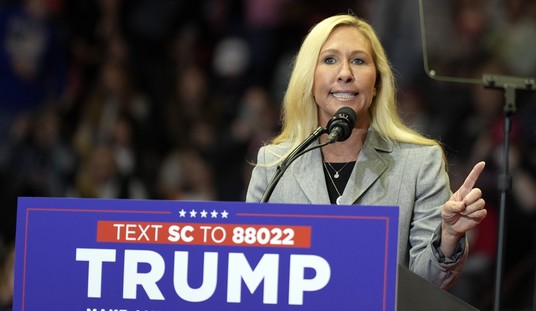An interesting story at ProPublica, prepared with assistance from NPR, chronicles efforts to bring “return-free tax filing” to the United States. It’s a system already used in a few other countries, and more-or-less duplicated by a few business partnerships in the U.S., but it’s something the Internal Revenue Service could implement nationwide.
Basically, the idea is to have the IRS prepare the equivalent of a 1040EZ or simple 1040 return for every taxpayer. They’ve already got the data needed for this – the sort of simplified return submitted by about 40 percent of Americans is based entirely on W-2 forms, state tax information, and standard deductions. Much of the public would be spared the drudgery of plugging these numbers into “simple” tax forms that many nevertheless find confusing and intimidating. Everyone else would be free to ignore the pre-filled form from the IRS, or incorporate its data into the more elaborate returns they prepare. The idea would be to offer a shortcut to the sizable number of people who don’t really do anything except add up the numbers from a couple of standardized printouts, pray to God they got it right, and send it off to the IRS.
While acknowledging the reasonable objections some have raised to the concept of return-free filing, the ProPublica article judges that the major reason it’s not happening is lobbying from companies such as Intuit, which make money by selling tax preparation services and software:
Intuit has spent about $11.5 million on federal lobbying in the past five years — more than Apple or Amazon. Although the lobbying spans a range of issues, Intuit’s disclosures pointedly note that the company “opposes IRS government tax preparation.”
The disclosures show that Intuit as recently as 2011 lobbied on twobills, both of which died, that would have allowed many taxpayers to file pre-filled returns for free. The company also lobbied on bills in 2007 and 2011 that would have barred the Treasury Department, which includes the IRS, from initiating return-free filing.
Intuit argues that allowing the IRS to act as a tax preparer could result in taxpayers paying more money. It is also a member of the Computer & Communications Industry Association (CCIA), which sponsors a “STOP IRS TAKEOVER” campaign and a websitecalling return-free filing a “massive expansion of the U.S. government through a big government program.”
In an emailed statement, Intuit spokeswoman Julie Miller said, “Like many other companies, Intuit actively participates in the political process.” Return-free programs curtail citizen participation in the tax process, she said, and also have “implications for accuracy and fairness in taxation.”
Intuit’s annual filing with the Securities and Exchange Commission concedes the painfully obvious point that return-free filing would damage its business interests. Proponents of the return-free idea estimate that it could save $2 billion in tax preparation costs every year. The companies that make a profit from that trade have a clear interest in keeping it alive.
But there are some reasonable objections to the return-free concept, including the cost to the IRS of creating and maintaining such a system, particularly given the complexity of the federal tax code. (There are conflicting estimates on whether the government would end up saving, or losing, money on the system.)
Some are concerned that taxpayers would be intimidated by receiving an official “bill” from the IRS, and would pay it without question, no matter how much education they receive on the optional nature of the program. It’s not hard to believe that enough people would be bullied by the system (or not feel sufficiently motivated to challenge its conclusions) to increase overall revenue to the IRS, if their calculations tended to be on the high side. That becomes less of an issue if they stick to “1040EZ with standard deduction” type calculations, making it clear to everyone with more complex returns that they’re better off figuring out their own taxes.
It’s possible that participation in the system would be lower than anticipated, due to general public unease at the notion of tax returns filled out in advance by the IRS, although there seems to be reasonable customer satisfaction with some little-known free-filing options already offered by the IRS. Perhaps a national return-free filing system would enjoy wider acceptance if it was subcontracted to private companies.
And although the ProPublica article doesn’t mention it, there’s also the problem of leaving low-end tax filers with even less “skin in the game” than they have now. A lot of people have been dropped from the income-tax rolls, or collect tax credits instead of paying income tax bills, but at least they still have a general sense of Tax Day as an annoying burden. Getting these folks to the point where they just sign off on a letter from the IRS that announces their lovely annual tax return “gift” would separate them even further from the burden others are carrying. Even if the entire nation moved to a Flat Tax system, there’s still a lot to be said for making people fill out tax returns, and confront the true cost of government, much of which is currently hidden. In fact, this is an explicit goal of many Flat Tax reform advocates, who cite the painless siphoning of economic blood through paycheck withholding as a contributing factor to jumbo-sized government.
But the role of tax preparation companies in the resistance to return-free filing is an interesting look at “special interest” politics, because even when they raise the most logical arguments, the self-interested motives of these companies would render them deeply suspect to many people. Is it possible for Americans to entertain sound, convincing arguments from entities that have a clear financial interest in the matter at hand? If your answer is “no,” then you’ll want to become a very discriminating consumer of public debate – because with a government as large as ours, almost everyone has such an interest. It’s just a question of how clear and direct their interest is. And of course, much depends on each entity’s skill at convincing the public they aren’t one of those hellish “special interests,” or concealing their advocacy entirely, by working through third parties.














Join the conversation as a VIP Member